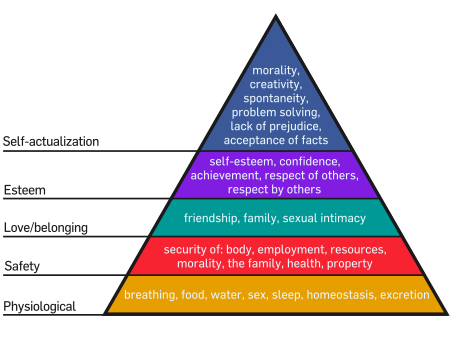Rick Santorum's recent comments on the notion of universal college education have spurred some interesting debate. While it may be true that his rhetoric was based on a flawed perception of Obama (Obama's actual speech included trade schools as perfectly valid career options), and designed to appeal to a stereotype of liberal "elitism", there was an element of truth in his denunciation of the common assumption that public education should be preparing all students for college.
In a perfect world, all students would have the social and human capital required to pursue a traditional course of academic study. Even those setting their sights on a technical career should certainly have a solid understanding of liberal arts, math and science.
However, that is not the world we live in. Communities all across the country are profoundly damaged, and hundreds of thousands of children raised in them are coming of age with profound deficiencies, such that even technical school, let alone 4 year university careers are out of the questions.
What we always have to remember in talking about education is that students vary widely in their levels of human and social capital, thusly emotional, cognitive, behavioral development. Vocational programs would need to be structured with this differentiation in mind.
I teach at a continuation high school, and the majority of students have suffered academically their whole lives because of the severe circumstances in which they have developed. Most come from incredibly dysfunctional homes, many have emotional and mental problems, most have substance abuse issues. It is quite common for them to be currently living in abusive homes, or to be members of incredibly dysfunctional peer groups. Numerous students read at an elementary grade level, and absolutely despise standard, grade-level curriculum.
Before these students can even think about academic learning, they need to develop basic emotional and behavioral skills. So what I'm interested in is the element of vocational schooling that better facilitates the remediation of these skills through cooperative, non-authoritarian, student-centered learning that provides the kind of hands-on, project-based, real-world enrichment activities that return to the student a feeling of confidence, purpose and ultimately a sense of self-control.
For these at-risk students, dropping out is a severe problem. What they need is to want to come to school, to feel that it is a rewarding, satisfying, and genuinely stimulating experience. Because of their limited development, the traditional model of relying about student interest in academic learning simply doesn't work. They hate reading, listening to teacher lectures, taking notes, and otherwise engaging in learning as a positive experience. In their world, with their norms, authorities are not to be trusted, and reality is to be escaped at all cost - generally by looking forward to getting high, drunk, etc. at the end of the day - often with family and friends.
If anyone has not yet seen the documentary The Wild, Wonderful Whites, I would recommend it as a primer for the kinds of behaviors and lifestyle of the very poor and dysfunctional in every community across the country. What you see in that movie is exactly what we're dealing with in the continuation environment, only often with minority groups having the added frustration of being cultural outsiders and having developed dysfunctional defense mechanisms.
At my school, vocational classes were long ago abandoned in favor of strict adherence to state standards and an assumption by administrators that the traditional, mainstream model of classroom pedagogy - if only perfectly applied - will somehow lead to students engagement and better test scores. The result is a sort of cacophonous medley of worksheets and teacher hoop-jumping in which administrators are placated with show-lessons designed to represent an imaginary administrative ideal, as opposed to the reality of what the students really need, and a pedagogy that delivers it to them.
Two classic concepts in education are currently being violated in this model: Maslow's Hierarchy of Needs, and
Vygotsky's Zone of Proximal Development. The former is a psychological model for the order in which human needs must be met before advanced thinking and behavior can be performed. Before something like algebra can be learned, the body must be fed, rested, adequately free of stress, etc. The latter describes the process of learning itself, in which new ideas and thought is constructed not from nothing but by a continuous cycling back to prior knowledge and experience. You can't expect a child to do multimplication if he hasn't masted the concept of addition. You can't teach moral relativism without first defining morality.
Most of my students have severe deficiencies not only in academic, contextual knowledge, but in basic emotional, behavioral and cognitive development. Worse, they'll have come from toxic home environments that on a daily basis actively deteriorate their ability to even consider higher-order needs, i.e. traditional academic instruction. The current model represents a sort of social-Darwinian dynamic in which only those students who for whatever reason have been able to have their needs met succeed, and the rest drop out. Any initiative that is truly egalitarian (i.e. allows every student to be successful), and makes a meaningful difference in all of these students' lives, must take these two concept into account as a foundational premise. Vocational training, with its utilization of hands-on, kinesthetic, co-operative and real-world problem solving, and properly designed and administered to facilitate not only academic, but more importantly personal, emotional, behavioral, social and cognitive development, would seem to be a clear pedagogical alternative the the traditional, mainstream model.


No comments:
Post a Comment